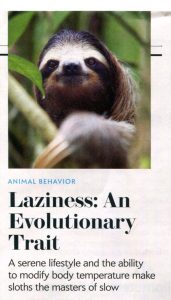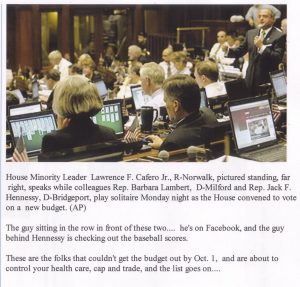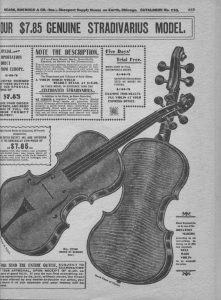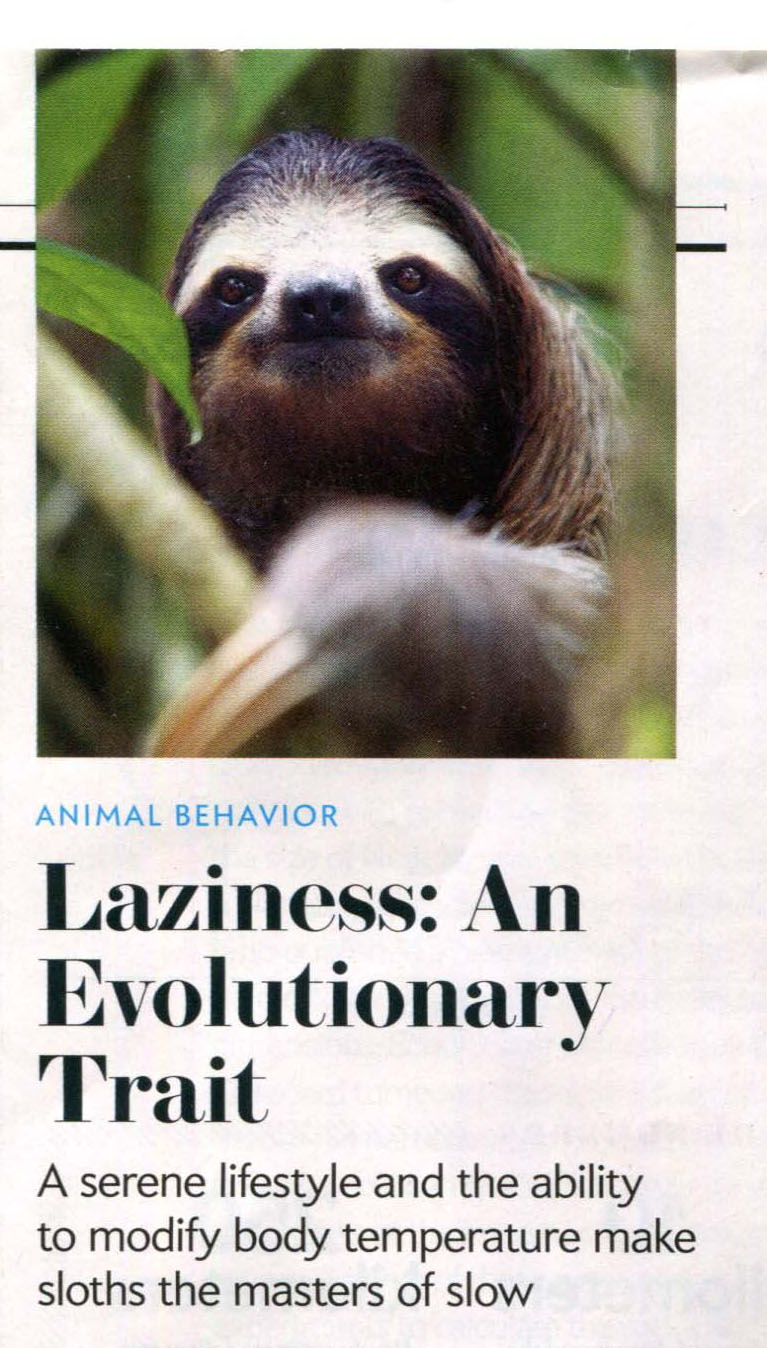It’s not a stretch to equate the dot.commie doodle LOL, meaning Laugh Out Loud, with the same symbol for Law of Lazy because laughing out loud and universal laziness are related. Canned laughter offers a perfect example: allowing others to laugh for you signifies a laziness to laugh on your own, as well as the imagination to get the joke. Some people seem to need an outside cue, a boost to see humor: LOL = Law of Lazy.
☞ Certainly, cultural stigma is typically attached to laziness, and way before the “sin” of sloth was stigmatized for those who do not honor work. Starting with a historical aspect, we might look at a tale expressing the basic suspicion of labor-saving devices which dates back at least two and a half thousand years. There are even older texts going back to ancient Sumeria, but this one from China is very representative:
The Chines sage Tzu Gung was traveling through the regions north of river Han when he saw an old man working in his vegetable garden who descended into a well to fetch up a vessel of water to pour it out into the ditch. When Tzu-Gung suggested to the old man, “there is a way whereby you can irrigate a hundred ditches in one day, and whereby you can irrigate with little effort. Would you not like to hear of it?”
Then the gardener stood up, looked at him and said, “And what would that be?”
Tzu-Gung explained how a wooden lever, weighted in the back and light in front can bring up water so quickly that it just gushes out. “This is called a draw-well,” he said.
Then anger rose up in the old man’s face, and he said, “I have heard my teacher say that whoever uses machines does all his work like a machine. He who does his work like a machine grows a heart like a machine, and he who carries the heart of a machine in his breast loses his simplicity. He who has lost his simplicity becomes unsure in the striving of his soul. Uncertainty in the strivings of the soul is something which does not agree with honest sense. It is not that I do not know of such things; I am ashamed to use them.”
☞ Our survey here is not some Luddite concern over the evils of machinery, some Amish rejection. It’s more of an attempt to survey— plus and minus— the blessings of labor-saving devices which have accrued through history since Tzu-Gang told his Taoist tale. The theme plays through history, a most popular one such as the learned Doctor Faust selling his soul to the devil for the power of control. In another version of Tzu Gang’s moral tale the farmer even claims how the draw-well emanated from the “cunning of the devil himself.”
☞ The variation on the story quoted above was taken from Marshal McLuhan’s Gutenberg Galaxy. The media sage used it to explain how “the reaching changes in our environment and in our way of life wrought by this technical age have also changed dangerously our ways of thinking,” wherein lies the “crises which have shaken our times.” Surely, the “uncertainty in the strivings of the soul” is perhaps one of the most apt descriptions of the growing individual helplessness created by the rise of a mechanical empire. McLuhan’s dictum that “the medium is the message” is the prophecy of the age in that regard. Who better prophesied the effects of electronic doodle boxes on the brain? Furthermore, it puts a bold frame around the Law of Lazy.
☞ If the machine will do it, why not? Blue-collar philosopher Eric Hoffer offered up paeans of praise when he saw the first lift truck roll onto the work site. For one who’d actually done heavy lifting, the advantage of machines manipulating commercial tons was obvious. But what the author of The True Believer rejected was the “heavy lifting” which usurped individual choice and talent. Methods subverting individual choice— propagandistic methods by sophisticated thinking and talking machines— produce a being who allows thought to be done for him. Agencies of canned broadcast “wisdom” to create irrational mass movements is a crisis that (to recall McLuhan’s words) “has shaken our times.”
☞ But we shouldn’t be so hard on our slothful selves. Laziness is built into existence. It’s a part of life. In biology, for example, the complex process of studying evolutionary development by paleontologists and biologists involves premises based upon the over-riding idea that “whatever scenario which requires the fewest steps in evolution is most likely to be the correct one.” Searching out the easiest steps— from simple single cell development to the complexity of a multi-celled high  school facilitator— aids in understanding evolution. The biota of the planet evolved by looking instinctively for the least difficult path in the survival game— known as the Law of Parsimony. Superfluous organs, along with superfluous ideas, get shed for streamlining into the future. Thus, the range from microscopic cells with fluttering flagella all the way up the evolutionary ladder to donkeys and teamsters: they all seek least difficulty in the daily business of survival: Law of Parsimony or Law of Lazy.
school facilitator— aids in understanding evolution. The biota of the planet evolved by looking instinctively for the least difficult path in the survival game— known as the Law of Parsimony. Superfluous organs, along with superfluous ideas, get shed for streamlining into the future. Thus, the range from microscopic cells with fluttering flagella all the way up the evolutionary ladder to donkeys and teamsters: they all seek least difficulty in the daily business of survival: Law of Parsimony or Law of Lazy.
☞ Similar sloth is found right on the tongue. Inherent in language development is an action known as the “principle of least effort.” The lazy mouth assumes the easiest way of delivering its gossip. The “Great Vowel Shift,” derived from linguist studies of the late middle ages, offers prime example. English pronunciation developed largely out of Saxon and Germanic dialects. Thus, the word for knight, a common fellow of his time, was pronounced as a ka neek ta. But who wants to go to all that trouble to site a rowdy fellow who jousts. Night is way easier, less hassle on the palate, and the K just hung on as a relic. Utterances slide backwards through time down the tongue to the back of the palate. Excessive syllables are dropped. It’s easier to utter a “d” instead of a “t” so that “shut up” becomes “shaddup.” The way “forget about it” becomes in some of the lazier arenas of speech: fuggedaboudit. LOL!
☞ Vocabulary, as well, enjoys a reduction of effort. Adjectives, for example, are reduced to bare minimum in order not to tax the brain of the speaker. Good things qualify on the whole as awesome or amazing, whereas negative judgment is easily dispatched by dark or republican. LOL strikes again.
 ☞ A favorite modern language LOL expression is the word worn out by politicos and media parrots today. To them, dialogue or debate has been tuned down to conversation. Discussions between mucky mucks and heads of states, not to mention journalistic gossips, are described solely as conversations. According to the Oxford Thesaurus, the earliest synonym (14th century) for conversation was dalliance. This is such a preciously ironic development stewing out of the chowder heads of public voice. such a deliciously subconscious confession that all of their pow wows are done on the level of dalliance. So-called high level talks— Iran acquiring nuclear warheads, Chinese trade obstacles— are reduced to a conversational affair. Dilly dallying in affairs of state– not to mention raking off the dough from actual enemies– while our own Rome burns certainly puts the right fit on LOL.
☞ A favorite modern language LOL expression is the word worn out by politicos and media parrots today. To them, dialogue or debate has been tuned down to conversation. Discussions between mucky mucks and heads of states, not to mention journalistic gossips, are described solely as conversations. According to the Oxford Thesaurus, the earliest synonym (14th century) for conversation was dalliance. This is such a preciously ironic development stewing out of the chowder heads of public voice. such a deliciously subconscious confession that all of their pow wows are done on the level of dalliance. So-called high level talks— Iran acquiring nuclear warheads, Chinese trade obstacles— are reduced to a conversational affair. Dilly dallying in affairs of state– not to mention raking off the dough from actual enemies– while our own Rome burns certainly puts the right fit on LOL.
☞ Not only does LOL apply to the behavior of critters, but it describes the action of matter itself. Matter takes the path of least resistance. Molecules shoot for least effort, described by inertia, Newton’s Law of Lazy, explicitly insisting on matter to remain at rest. How about water? Always looking to slide downhill. Sure, you see it rushing around and falling rapidly in a magnificent display of torrential falls, but even water is lazy. It won’t raise itself above its own level, except under pressure— like us. Matter and energy follow the same path. Electrons are thoroughly dedicated to the path of least resistance. This may be quickly tested by connecting an electrical plug to see who’s least resistant while standing in ☞ WATER.
☞ So laziness might not be a moral preference, but happens to be a trait underlying natural, physical, and evolutionary processes. A touch of lazy in everyone and everything: Lazy is as lazy does.
GUILTY BY REASON OF LAZY
☞ In a series of aphorisms Franz Kafka wrote, the first of which declares that the cardinal sin is impatience, followed by laziness. Since one is an offshoot of the other, they are both about as destructive. He judged a greater degree of harm to laziness than all the other sins. Reflections on Sin, Faith, Hope, and The True Way starts with a title suggesting an exaggerated, even pompous approach to those lofty virtues, faith and hope, but there is a ring to its essential understanding— even for a lazy person.

Franz Kafka
The true way, Kafka explains, goes over a rope which is not stretched at any great height but just above the ground. It seems more designed to make people stumble than to be walked upon.
(Such is the rhythm of laziness causing the death of the strivings of the soul. It helps to see how sinister little things come from far off, but arrive a little every day.)
All human error is impatience, a premature renunciation of method, a delusive pinning down of a delusion… (Think of the farmer who refused the mechanical well.) There are two cardinal sins from which all the others spring: impatience and laziness. Because of impatience we were driven out of Paradise, because of laziness we cannot return. Perhaps, however, there is only one cardinal sin: impatience. Because of impatience we were driven out, because of impatience we cannot return.”
☞ Upon first reading these assertions, it’s easy to assume they came from a trickster absurdist laughing up his sleeve. It takes a while to see beyond the scope of what is considered normal human skullduggery. Out of the catalogue of spectacular human horrors— wars, mass exterminations, whole nations following destructive ends— that laziness resulting from impatience should be the cardinal sin! Really?
☞ But I guess I was just being lazy about it because those three concepts work into a whole Philosophy of Sloth. Not that the Law of Lazy is difficult to spot. Classify it among those who don’t want to wait for the payoff they think they deserve. That covers the thief who can’t wait and work honestly for the coveted thing. It covers the fund recipient who fakes his need? It covers the rapist who won’t wait for another’s favor. It covers the politician sitting in his office like a poison flower waiting for the favors to buzz in. It covers feminists willing to undermine traditional values because an imagined higher status is wanted NOW. Likewise yuppies who believed they deserve the thing and they durn well have the right to GET IT NOW! Many of them were the folks who wanted peace, and when did they want it? NOW!
☞ And then after that they got peace they wanted a house bigger than everyone else’s to raise their five children.
“Why do we have to wait for that big house like your parents have? Let’s get ours right now.”
“You’re absolutely right, dear. And Barney will help us with the deal, too.”
“Barney?”
“Yes, Senator Barney Frank who heads the senate banking committee. He, along with Chris Dodd, will force those greedy ol’ banks to give us the loan we can’t afford. So what if we’re in a hole. At least Barney recognizes our worthiness.”
And that’s the story of how laziness and impatience brings down the bank which brings down the house which brings down the national financial structure and makes the financial condition and everyone else very very depressed. Law of Lazy: venal sin or mortal sin?
☞ And those corporate raiders and CEOs: How were they for laziness? To believe they deserve a king’s ransom for running corporate entities into the ground and sold for scrap? Glorified administrators with a Midas appetite but severely lacking in the Midas touch. But if you lust enough for easy gelt, you must devise ways to ease around the mere drudgery of earning honest profit through production.
BERNIE MADOFF AND THE WATERLESS DEMONS
☞ With reader patience running full steam ahead, let’s try another ancient tale of old-fashioned moralism. But let’s try re-telling an old one by using a contemporary character. It’s a playful variation on a tale found in Joseph Campbell’s Hero of a Thousand Faces relating the story of an Indian caravan leader from Benares who made bold to conduct his richly loaded expedition of five hundred carts into a waterless wilderness:
Forewarned of dangers, the caravan leader had taken the precaution to set huge chatties filled with water in the carts, so that, rationally considered, his prospect of making the passage of not more than sixty desert leagues was of the best. While making slow progress through the dry desert, the caravan observed coming down the road from the opposite direction a delightful cart drawn by pure white young oxen, the wheels smeared with mud. Both before the cart and behind marched a retinue, heads wet, garments wet, decked with garlands of water lilies both blue and white, carrying in their hands clusters of lotus flowers both red and white, chewing the fibrous stalks of water lilies, streaming with drops of water and mud.
And when the caravan drew aside to let the other pass, one man on the flowery cart greeted the merchant and introduced himself in a friendly manner as Bernie Madoff. “Where are you going?” Bernie politely asked.
To which the caravan leader replied: “We, sir, are coming from Benares. But you are approaching decked with water lilies both blue and white, with lotus flowers both red and white in your hands, chewing the fibrous stalks of water lilies, smeared with mud, with drops of water streaming from you. Is it raining along the road by which you came?”
“Do you see that dark green streak of woods?”— the leader called Bernie Madoff asked. “Beyond that point the entire forest is one mass of water; it rains all the time; the hollows are full of water; everywhere are lakes completely covered with lotus flowers both red and white.”
As the carts passed one after another, he inquired: “What goods do you have in this cart— and in that? The last moves very heavily; what goods do you have in that?”
“We have water in that,” the caravan leader answered.
“You have acted wisely, of course, in bringing water thus far,” said Bernie, “but beyond this point you have no occasion to burden yourself. Break the chatties to pieces, throw away the water, travel at ease.” Then Bernie Madoff, with his investment retinue, went their way.
Out of his own foolishness, the caravan leader took the advice of the stranger, broke the chatties, and caused the carts to move forward. Ahead there was not the slightest particle of water. For lack of water to drink the men grew weary. They traveled until sundown, and then unharnessed the carts, drew them up in a contracted circle, and tied the oxen to the wheels. There was neither water for the oxen nor gruel and boiled rice for the men. The weakened men lay down here and there and went to sleep.
At midnight the Bernie Madoff ogres approached from the city of ogres in their true form, slew the oxen and men, every one, devoured their flesh, leaving only the bare bones, and, having so done, departed. The bones of their hands and all their other bones lay scattered about in the four directions and the four intermediate directions; five hundred carts stood as full as ever.
☞ When “investors” questioned his ponzi operation, wanting to know more details, wanting to receive statements about the sources of his revenues, Bernie Madoff would put them on the defensive: “If you don’t want to be part of my action, I’ll refund your money right away.”
“Oh, no, Bernie, that’s alright” they would humbly plead off. “No, I want to be a part of that unreal ten percent yield you’ve been delivering. Otherwise I’d have to wait much longer for a return on my investment, and— well, being impatient and all, keep on trucking, Bernie. We got your back.”
And he did have their back— and their asses. And he made off with them— like the ogres of the tale feeding on the bones of fools too lazy, literally, to haul their own water.
☞ Investment does seem ripe for scams. The South Sea Bubble, the Mississippi Bubble, the Tulip Bubble— unbelievable prospect produces more bubbles than a gaseous hippopotamus. The Tulip Bubble, always a favorite. How could a frugal Dutch investor be led to believe that a tulip bulb would be worth more than his own house? You have to open real wide to swallow that one. But they did. And still do. Just like the lazy merchant, Bernie Madoff’s folks didn’t want to carry their water any further than necessary, but they wanted to be splashing in it too. Without that extra weight— or let’s say that extra wait on a credible return of interest— their impatience for reward was justified. Then all they had to do was wait for the Ponzi rain.
Lazy is as lazy does.
LABOR-SAVING VICES

Students, eased from homework and thereby freed for more doodle box time
☞ Instinct for lazy is natural, surely. And why not? Who wouldn’t want a labor-saving device? This laptop before me employs a key for each letter. The keyboard enables me to write much faster and more efficiently than, say, Hemingway did with a mechanical typewriter, and far faster than Shakespeare wrote using a quill pen. Twenty six electronic letters against dipping and sharpening one quill pen: So that must mean I should be a twenty six times better writer than Shakespeare. Or maybe not. Maybe there is something lost with mere efficiency or gadgetry. This is where the argument against the benefits of technology rears its head. We can suppose that the workforce is overwhelmed by the development of work– and think– saving devices. But relying on a calculator helps in forgetting time tables or even learning how to add or subtract.
☞ DE-TUNING THE CREATIVE PROCESS
Articles abound about keeping the mind alive with the help of games such as crossword puzzles. Those pass time activities supposedly keep the connections firing probably because they stimulate the imaginative process and recreate the creative process. But not likely, since the process is pre-formatted. Reading is re-creating the imaginative process of a written piece, but Gutenberg is dead. Writing is closer to that process. Unlike crossword puzzles, writing calls for the correct word in a context of the “player’s” own mind. But literature is dead. Word games and memory exercises represent a pathetic attempt at keeping the mental connections alive. They have little effect in a world in which the Cyclops is on duty. Remembering that the one-eyed giants were the ones who tended the sheep of the gods, Polyphemus of the telie is there to make sure that even recall is useless.
☞ APPETITE TO GO
While eating a sandwich I’m thinking of the eponymous Earl of Sandwich. The Earl invented the sandwich because he was too busy gambling. But at least he had something going. So what  are all those people who only eat pizzaburgers up to? What do they have going? Why so busy that they are eternally satisfied with a stock preparation of meat or fish between two slices of bread, or pre-cooked frozen food from across the ocean? Eating according to the recipe book of lazy.
are all those people who only eat pizzaburgers up to? What do they have going? Why so busy that they are eternally satisfied with a stock preparation of meat or fish between two slices of bread, or pre-cooked frozen food from across the ocean? Eating according to the recipe book of lazy.
 ☞ CANNED MUSIC
☞ CANNED MUSIC
The 1900 Sears & Roebuck Catalogue offers dozens and dozens of musical instruments made available to folks who played and danced to their own music. Actual musical notes were called up in the head to inform mouths and fingers for a proper sound. All that fingers are now relegated to do is touch a dial wherein the listener selects a favorite canned sound. More of the individual as a passive sop. In McCluhan’s terms: a hot medium cooled down for a detached passive participant. Even the modern composer is detached from actual notes emanating from the head; the source of sound is now available in digital bites (bytes?) to be slopped together and formed into some concoction of rhythmic slur, with indistinguishable vocals, also pre-recorded. Hit parade with an added S.
☞ But right now I’m feeling too lazy to continue this farce. Think I’ll just check out, kick back with a glass of Jack, and put on some music. But not with the Victrola that requires winding up. Naw, I’ll just hit the remote and tune in FM to one of those poor misbegotten guitar whelps who can’t scream more than one repeated line at a time. So my mind won’t be too taxed. It fits the mood. Until next time.
JoCo, Post-Modern Prospector

